
- Majors & Careers
- Online Grad School
- Preparing For Grad School
- Student Life

Top 10 Best PhD in Law Programs [2024]

A PhD in law is an advanced qualification that will make you a true legal expert. You can use that credential to work as a legal research scholar or teach at a post-secondary level. This is not only a prestigious career path but also a lucrative one — today’s law PhD holders have an average salary of $93,000.
Today’s law schools emphasize an interdisciplinary approach to legal education, equipping students to work in a diverse range of fields.
Interested in an advanced criminal justice career? Below we’ll cover the top PhD in law programs, universities, and what you need to know before pursuing a doctorate in law.
Table of Contents
Top PhD in Law Programs
Yale university, law school.

Yale University’s Law School ranks first in the nation, with its 20 legal clinics offering an immersive experience for students. This PhD program has a purely academic focus. To qualify for admission, you’ll need to already have a JD (Juris Doctor) degree. If accepted, you’ll be able to benefit from Yale Law School’s acclaimed “Yale Teaching Program.”
- Courses: Criminal law & administration, international human rights, and complex civil litigation.
- Duration: 3 years
- Delivery: On-campus
- Tuition: Fully funded
- Financial aid: Full tuition coverage, health insurance, and stipend.
- Acceptance rate: 7%
- Location: New Haven, Connecticut
Stanford University
Doctor of the Science of Law (JSD)

Stanford University is another highly acclaimed institution in the field of law education with a tough admissions process. Only a few exceptionally gifted students with an international JD or LLB or a SPILS (Stanford Program in International Legal Studies) qualification are accepted into this program every year. The program has an emphasis on an interdisciplinary approach to law.
- Courses: Advanced antitrust, current issues in business law, and reinventing American criminal justice systems.
- Credits: 44 units
- Duration: 4 years
- Tuition : $64,350 per year
- Financial aid: Scholarships, fellowships, grants, assistantships, federal work-study, and loans.
- Acceptance rate: 5%
- Location: Stanford, California
The University of Chicago, The Law School
Doctor of Jurisprudence (JSD)

The Law School of the University of Chicago is renowned for its interdisciplinary approach to teaching and cross-lists its courses with other departments. The faculty include philosophers, political scientists, historians, and law scholars. Students also have the option to pursue a Doctorate in Comparative Law (D.Comp.L.) instead of a JSD if they wish.
- Courses: Antitrust & intellectual property, civil rights clinic: police accountability, and American legal history.
- Duration: 5 years
- Tuition : $7,647 per year
- Financial aid: Full tuition scholarship, fellowship, and health insurance.
- Acceptance rate: 7%
- Location: Chicago, Illinois
Columbia University, Law School
JSD Program

The Columbia Law School emphasizes experiential learning with law clinics, moot courts, and externships, offering opportunities for innovative education and valuable intellectual exchange. Students can conduct independent research with the help of their faculty advisors and they need to submit a DPR (Dissertation Progress Report) at the end of each year.
- Courses: Intellectual property & technology, international & comparative law, and law of the workplace.
- Duration: 5-6 years
- Tuition : $75,572 per year
- Financial aid: Grants, loans, and first child allowance.
- Location: New York City, New York
Harvard University, Law School
Doctor of Juridical Science (SJD)

Harvard University is one of the world’s most famous centers for education, and its Law School is equally renowned. The school has a unique grading system that uses the classifications honors, pass, low-pass, and fail. This flexible SJD program allows students to design their own study plan and choose faculty supervisors for independent research.
- Courses: Advanced comparative perspectives on US law, environmental justice, and strategic litigation & immigration advocacy.
- Duration: 4 years
- Delivery: On-campus
- Tuition : $67,720 per year
- Financial aid: Scholarships, grants, and loans.
- Location: Cambridge, Massachusetts
The University of Pennsylvania, Carey Law School
Doctor of Science of Law (SJD)

Carey Law School’s curricula cut across disciplinary and international lines to create law experts in every field, including business, health, technology, education, and social work. For admission to the Carey Law School PhD, you must already hold an LLM or JD from the same school or an institution of similar standing.
- Courses: Privacy & racial justice, appellate advocacy, and disability law.
- Tuition : Refer tuition page
- Financial aid: Full tuition, stipend, health insurance, and scholarships.
- Acceptance rate: 9%
- Location: Philadelphia, Pennsylvania
The University of Arizona, James E. Rogers College of Law

The University of Arizona’s James E. Rogers College of Law is one of the country’s most affordable top-tier law schools. This PhD law degree offers the choice of two concentrations: International Trade & Business Law, and Indigenous Peoples Law & Policy.
- Courses: International business & investment structuring, federal Indian law, and trusts & estates.
- Duration: 3-5 years
- Tuition and fees : $26,000 per year
- Financial aid: Scholarships, federal work-study, loans, veteran benefits, and fellowships.
- Acceptance rate: 85%
- Location: Tucson, Arizona
The University of Texas at Dallas, School of Economic, Political, and Policy Sciences
Doctor of Philosophy in Criminology

The University of Texas’ School of Economic, Political, and Policy Sciences creates professionals capable of dealing with modern issues like risk management, political violence, social inequality, healthcare, and international trade & conflict resolution. You’ll need a bachelor’s in criminology or a related discipline to apply for this PhD in criminology.
- Courses: Advances in criminology theory, evidence-based crime prevention, and regression & multivariate analysis.
- Credits: 75 semester credit hours
- Financial aid: Scholarships, grants, and loans.
- Acceptance rate: 79%
- Location: Richardson, Texas
Abraham Lincoln University, School of Law
Juris Doctor (JD)

This school was founded with to provide affordable education to working professionals who cannot attend regular law school. This doctorate in law is a flexible JD degree that can be completed entirely online through the university’s high-level education technology.
- Courses: Criminal law, civil procedure, and wills & trusts.
- Delivery: Online
- Tuition : $10,100 per year
- Acceptance rate: 90.3%
- Location: Glendale, California
Walden University
Online PhD in Criminal Justice

Walden University aims to help working professionals pursue advanced degrees and has been ranked #1 in research doctorates for African-American students. This program was one of the first online doctorates in criminal justice and allows students to explore national and international issues in criminal justice administration with a dual emphasis on contemporary theory and practice.
- Courses: History & contemporary issues in criminal justice, policy & analysis in criminal justice systems, and research theory, design & methods.
- Credits: 77 quarter credits
- Tuition : $636 per quarter hour
- Financial aid: Grants, scholarships, loans, and veteran benefits.
- Acceptance rate: 100%
- Location: Minneapolis, Minnesota
What Do You Need to Get a PhD in Law?
The exact requirements vary depending on the program, but you’ll typically need a LLB, LLM, or JD as a basic prerequisite.
As part of the admission process, you usually need to submit:
- Academic transcripts from previous studies
- Personal essay and/or research proposal
- Recommendation letters
To earn your doctorate, you’ll have to complete coursework, qualifying examinations, and usually a dissertation to a high standard.
Preparing for a Law Doctorate Program
The best PhD in legal studies programs are competitive, so it’s important to start preparing early. Keep up to date on developments in the field and research the best universities that offer your preferred specialization.
Look into leading faculty members in your areas of interest, and network by joining relevant professional communities. Once you’ve decided on your dream program, check admission requirements to prepare the strongest possible application.
Things to Consider When Choosing a Law PhD Program
Choosing the best law PhD program will depend on a range of factors, including your passions and interests. However, there are a few general factors that are essential for everyone deciding on a law school for their PhD to consider:
- Location: First, a school close by could save you on accommodation costs. But that’s not the only location consideration. You should look at your school destination for evidence of a booming legal or education industry. For example, New York is a hub for business, while Boston is known as a center for technology.
- Cost and funding: Ensure the program costs align with your budget and explore financial aid opportunities.
- Specialization: Some schools offer unique specializations like social justice, law and economics, and international law. Choose a program with a focus on your preferred specialization.
- Faculty: The university’s reputation is important, but its faculty credentials are equally critical. Explore faculty backgrounds by researching published papers and social media profiles like LinkedIn.
- Class sizes: Smaller class sizes mean better one-on-one attention; however, a larger cohort offers better networking opportunities.
- Placement support: What happens after graduation? Are you on the hook for finding a job on your own, or does the school offer placement options? Find out where alumni are employed to get an idea.
Why Get a Doctorate in Law?
A doctorate degree in law will allow you to pursue roles in the legal field as a scholar, researcher, or academic, and build a worthwhile career.
Several candidates apply for admission to PhD in jurisprudence programs every academic year, but top law schools have low acceptance rates, and only a few are accepted. For example, Harvard only has around 70 SJD students while hundreds or thousands may apply. Therefore, with this qualification, you’ll belong to an exclusive group of in-demand professionals.
Jobs for PhD in Law Degree Holders
Here are some common roles for PhD holders in law with the average annual salaries for each:
- General Counsel ($170,183 )
- Staff Attorney ($71,106 )
- Professor of Law ( $131,926 )
- Project Manager ( $76,264 )
- Senior Research Associate ( $75,029 )
Course Costs
The cost greatly depends on where you study, but prestigious law schools can charge annual tuition of around $65,000. Once you factor in living expenses, books, and facility fees, the total cost can add up to around $100,000 a year. However, you can find programs with tuition and fees for as little as $7,500 a year. Moreover, most top institutions offer full-tuition scholarships, stipends, and similar financial aid that cover almost all of your expenses.
Course Length
Typically, a PhD in law takes 3-5 years to complete. However, most programs will give you extra time to complete your doctorate if needed.
Skills You’ll Gain through a PhD in Law
Aside from giving you in-depth and expansive legal knowledge, PhD in law programs can also help you develop the following skills:
- Communication
- Presentation
- Critical Thinking
- Project Management
- Problem Solving
Key Takeaways
A PhD in law is an excellent choice for legal professionals seeking a career in research or academia. While a JD or Juris Doctor is equivalent to a PhD, the former equips you to become a law practitioner.
On the other hand, if you want to teach at a post-secondary level or conduct further legal research, you will need a PhD. Prepare early and choose a program that will best help you to achieve your career goals.
For more law education advice, take a look at our guide on the best master’s in criminal justice programs , or weigh up your options with the highest-paying PhDs .
PhD in Law FAQs
What is a phd in law called.
A PhD in law is usually called a Doctor of Law or Doctor of Laws. Some universities offer a JD (Juris Doctor or Doctor of Jurisprudence) degree, while others offer SJD (Doctor of Juridical Science) or JSD (Doctor of Science in Jurisprudence) programs.
Is a PhD in Law the Same as a JD?
A JD (Juris Doctor) degree is suitable for anyone who wants to practice as a licensed legal professional. These programs usually take three years to complete and are mostly coursework-focused.
On the other hand, a PhD in law may take 5-6 years to complete and usually involves a dissertation or major research project. If your aim is professional research or a job in academia in the discipline rather than practicing law, a PhD is better for you.
What is the Highest Degree in Law?
A PhD in law is generally considered the most advanced law degree. While some universities call it by other names, such as SJD (Doctor of Juridical Science) or JSD (Doctor of Jurisprudence degree), this is essentially the same thing.
How Long is a PhD in Law?
PhD Law programs typically take 3-5 years to complete. You may take longer for individual reasons, such as if you choose to study part-time.
What Does a PhD in Law Do?
A PhD in law will equip you to work in legal research or academia.

Lisa Marlin
Lisa is a full-time writer specializing in career advice, further education, and personal development. She works from all over the world, and when not writing you'll find her hiking, practicing yoga, or enjoying a glass of Malbec.
- Lisa Marlin https://blog.thegradcafe.com/author/lisa-marlin/ 12 Best Laptops for Computer Science Students
- Lisa Marlin https://blog.thegradcafe.com/author/lisa-marlin/ ACBSP Vs AACSB: Which Business Program Accreditations is Better?
- Lisa Marlin https://blog.thegradcafe.com/author/lisa-marlin/ BA vs BS: What You Need to Know [2024 Guide]
- Lisa Marlin https://blog.thegradcafe.com/author/lisa-marlin/ The 19 Best MBA Scholarships to Apply for [2024-2025]
Top 12 Best Laptops for Graduate Students in 2024
Top 10 best phd in theology programs [2024], related posts.

- How New Grads Research Companies to Find Jobs

- Experience Paradox: Entry-Level Jobs Demand Years in Field

Grad Trends: Interest in Artificial Intelligence Surges

Applying to Big Tech This Year? Here’s How to Ace It.

73% of job seekers believe a degree is needed for a well-paying role–but is it?

Tech Talent Crunch: Cities with More Jobs Than Workers

Leave a Reply Cancel reply
Your email address will not be published. Required fields are marked *
Save my name, email, and website in this browser for the next time I comment.
Recent Posts
- The Sassy Digital Assistant Revolutionizing Student Budgeting
- Computer Science Graduate Admission Trends: Annual Results
- The Best Academic Planners for 2024/2025

© 2024 TheGradCafe.com All rights reserved
- Partner With Us
- Results Search
- Submit Your Results
- Write For Us

- School of Law
Ph.D. in Law
The Ph.D. in Law prepares graduates for global leadership in the judiciary, academia, business and government. Since 1966, the program has offered a select number of diverse students the opportunity to attain their highest professional aspirations and career goals. A preeminent center for interdisciplinary legal studies, UW Law offers a global focus and innovative approach to integrating legal scholarship within the humanities and social sciences, medicine and global health, business and technology, and environmental and public policy.
The Ph.D. program is designed to provide a rich and thorough foundation in research methodologies, jurisprudence, legal theory, policy, dissertation preparation and ready access to specialized elective coursework from within the law school and university-wide research centers, institutes and schools. Throughout the program, our graduate students receive individualized attention from exceptional faculty and staff.
With its long and respected history, the Ph.D. program provides students with a global alumni network. Alumni are committed supporters and mentors and lead in many sectors around the world.
The Ph.D. program requires a minimum of three years’ study, at least two years of which are comprised of coursework taken while in residence at the UW. Ph.D. candidates must complete 90 credits. A minimum of 60 credits must be taken at the UW including a minimum of 27 dissertation credits. Some of the credits earned in an LL.M. program may be counted among the 60 credits.
Doctoral dissertation committees are led by faculty experts from UW Law and include members with deep knowledge and expertise from across the university. Students can customize their studies with interdisciplinary coursework, independent study, field research, global internships and externships.
See full curriculum
- Current Ph.D.s in Law
- PhD Admissions
Related Links
Graduate Programs, UW School of Law William H. Gates Hall Box 353020 4293 Memorial Way Seattle, WA 98195-3020, USA gradlaw@ uw .edu

Doctor of Science of Law (JSD)
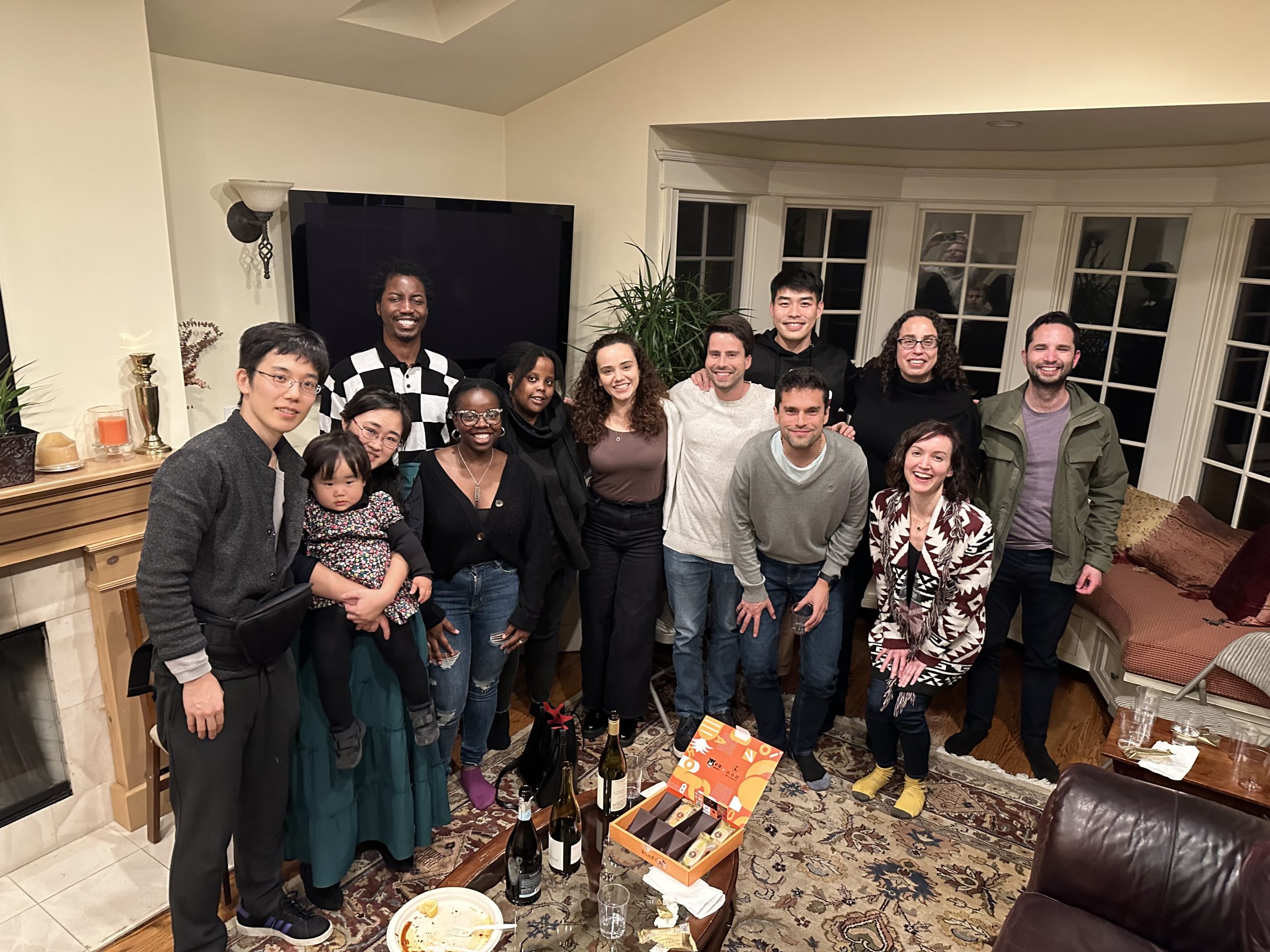
The Doctor of the Science of Law (JSD) is the Law School’s most advanced law degree, and is considered a doctorate equivalent to a Ph.D. It is designed for those interested in becoming scholars and teachers of law including interdisciplinary approaches to law.
Study toward the degree is open only to a small number of exceptionally well-qualified students who hold a JD or LL.B earned outside the United States. Students in the program develop substantive expertise in one or more fields of law and have the opportunity to pursue substantive and methodological training in allied disciplines across the broader university, including but not limited to, the social sciences, humanities, and engineering. The program culminates in the student producing a dissertation under the personal supervision of a Faculty committee comprised of law school professors as well as, where appropriate given the student’s interests, faculty from other departments of the university.
There are two different tracks for admission into the JSD program. A minimum of two students will be admitted from among students who have completed the Stanford Program in International Legal Studies (SPILS) at Stanford Law School. In addition, students at Stanford and at other law schools in the United States who will have completed LLM degrees prior to the commencement of the JSD program are encouraged to apply for admission and will be seriously considered. To be competitive, students applying from LLM programs must have completed (and must submit) a serious piece of independent, original research demonstrating their scholarly potential.
Admission to the JSD program is on a highly selective basis. Please note that admission to SPILS or to any Stanford LLM program does not imply a commitment by Stanford Law School to accept a student into the JSD program.
Some need-based funding, as well as funding to conduct research and attend conferences is available to admitted JSD students.
Questions concerning the JSD program should be directed to [email protected] .
HOW TO APPLY
JSD Candidates
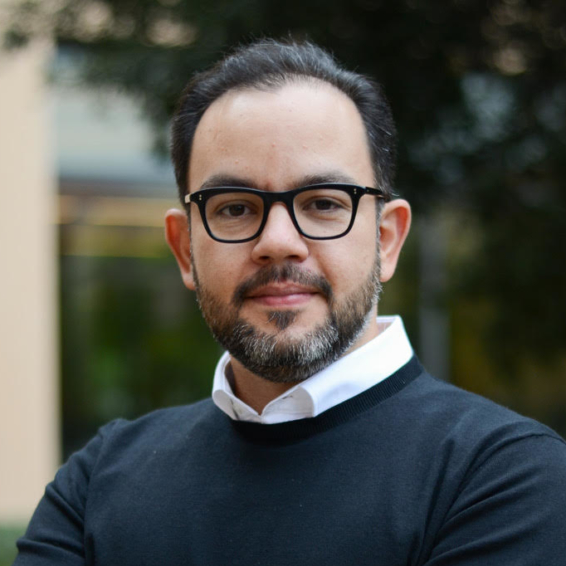
Luis Bergolla
- JSD Candidate
- Teaching Fellow, LLM Program in International Economic Law, Business and Policy (IELBP)
- Lecturer in Law

Silindile Buthelezi
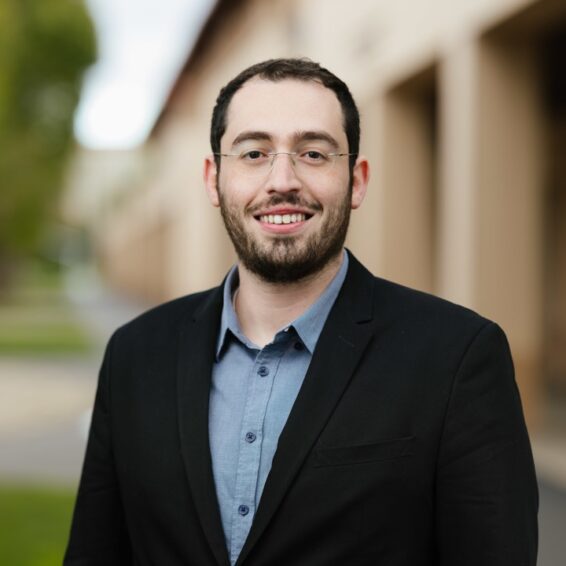
Hadar David
Rolando garcia miron.
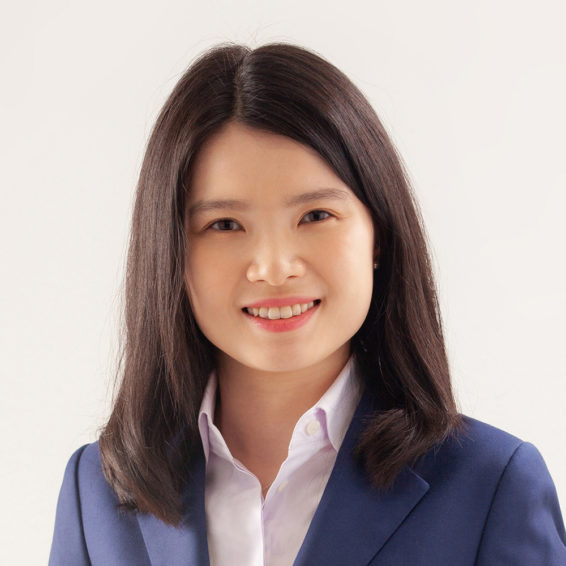
Yutang Hsiao
Tai-jan huang.

Takuma Iwasaki
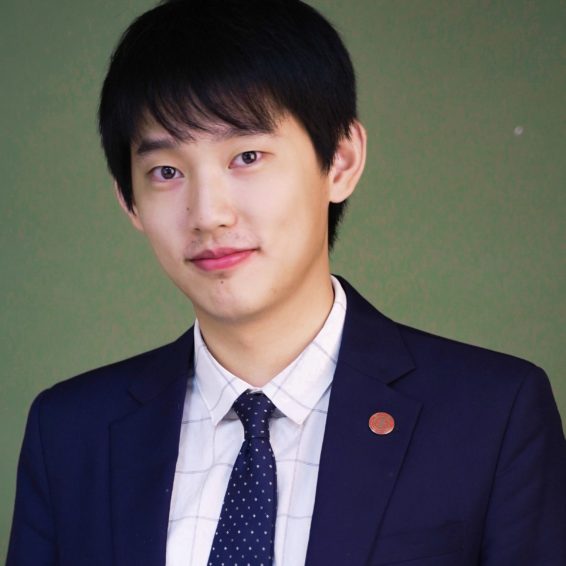
Maria Palacio
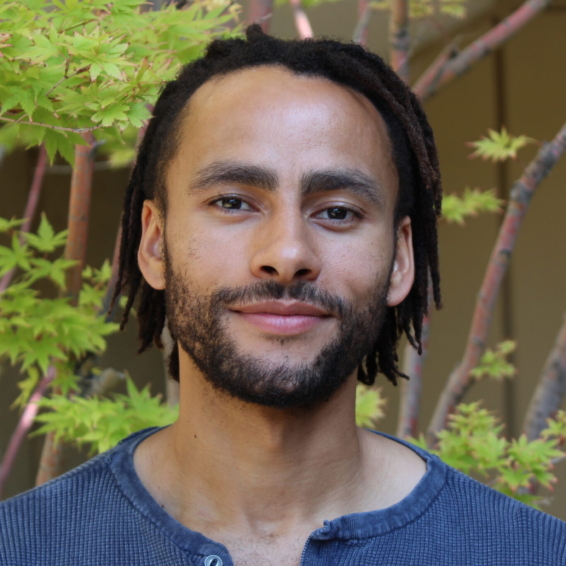
Michael Thorburn
Having a jsd from stanford law school opens up countless career opportunities..
Teaching in US Academia
Teaching Outside the US
Working in the Public Interest Sector
Working in the Private Sector
Graduate Program
Apply to the Graduate Program
Graduate Program Handbook
HLS Course Catalog
Admitted LL.M. Students
Harvard International Office (HIO)
The Graduate Program attracts lawyers of demonstrated intellectual and academic excellence from all over the world. The LL.M. and S.J.D. programs expose students to American modes of legal education (which emphasize critical thinking and self-inquiry) as well as to substantive law, and enhance our students’ ability to do advanced scholarly work. The Graduate Program also hosts the Visiting Scholar/Visiting Researcher program, which accommodates a small number of legal scholars and researchers from around the world who are engaged in major research projects for which the Law School’s outstanding library resources may be of assistance.
Graduate Program Admissions & Financial Aid
Learn about all aspects of the admissions processes for our LL.M., S.J.D., and Visiting Scholar/Visiting Researcher programs, as well as financial aid and billing.
Admissions & Financial Aid
LL.M. Program
S.j.d. program, visiting scholar/visiting researcher program, graduate program alumni, news from the graduate program, make a gift to the graduate program, ll.m. class profile, world class: news and profiles for the graduate program community, modal gallery, gallery block modal gallery.
Ph.D. Program in Law & Economics
- Student Profiles
Program Overview
Vanderbilt Law School's Ph.D. Program in Law and Economics is unlike any other. Dual-degree students pursue a J.D. and a Ph.D. concurrently in a fully integrated curriculum that combines economic theory and methodology with the study of law. The program is designed so that students complete both degrees in just six years. Admitted students receive a full funding package , including tuition for both degrees and a competitive annual stipend, for all six years of study.
- Explore our History
About our Program
Applicants must complete separate applications to Vanderbilt Graduate School and Vanderbilt Law School. Each applicant's Law School and Graduate School applications will be considered together in a collaborative admissions process.
Program faculty guide students through an innovative law and economics curriculum in which students pursue policy-relevant research. The program offers four primary research fields: behavioral law and economics, labor markets and human resources, law and economics, and risk and environmental regulation.
Program graduates are in tenured or tenure-track positions at University of Alabama, University of Arkansas, University at Buffalo, Florida State University, George Mason University, University of Texas, Vanderbilt University, and Western Kentucky University, as well as in positions in government, legal practice, and consulting.
The Law & Economics/Applied Microeconomics Seminar Series brings scholars from around the world to Vanderbilt to present research spanning a variety of fields and topics. The program also hosts a variety of conferences, including the biennial Frontiers in Law and Economics (FILE) conference.
Application Closed for Fall 2024
- How to Apply
August 15, 2024
Applications open for Fall 2025
January 15, 2025
Deadline for priority consideration
April 1, 2025
Final deadline
In the News
Have questions.
Contact the Ph.D. in Law & Economics Program Manager.
Doctoral Programs

Academics & Clinical
Student Life
Faculty & Research
Campus Services

- Admissions Policy
- Our Interview Program
- Check Status
- Tuition and Financial Aid
- Consumer Information (ABA Required Disclosures)
- Class Profiles
- Recruitment Events
- Experiencing Northwestern Law
- Fast Facts for Prospective Students

- Degree Programs
- Curricular Offerings
- Bluhm Legal Clinic
- Public Interest Center
- Donald Pritzker Entrepreneurship Law Center
- Global Opportunities
- Continuing Legal Education
- Registration and Records
- Academic Calendar

- Student Services
- Student Organizations
- Sponsorship Opportunities
- Career Strategy Center

- Faculty Profiles
- Law Library
- Faculty Publications
- Conferences, Colloquia, and Workshops
- Center on Law, Business, and Economics
- Center for Racial and Disability Justice
- Gender Equity Initiative
- Policies and Recruitment

- Information Technology
- Facilities and AV Support
- Contacts and Directories

- Marketing and Communications
- Visit Campus

- About the Office of Diversity, Equity & Inclusion
- Scholarships and Opportunities
- Reporting Concerns
- News and Events
- Land Acknowledgment
- Policy on Discrimination, Harassment, and Sexual Misconduct

Northwestern's JD-PhD program is open to students who intend to pursue an academic or research career and whose teaching and research will be enriched by both degrees. The program is designed to allow students to complete both degrees more effectively than they would through consecutive degree programs. Students are able to complete the entire program, including dissertation, in as few as six years.
Northwestern JD-PhD graduates have obtained faculty positions in law and graduate schools as well as prestigious judicial clerkships.
Advantages of Northwestern's JD-PhD Program
The most integrated program of its kind.
The program offers a coherent course of study on a set track that integrates the rigorous terrains of doctoral and law studies. Faculty members from each of the schools jointly supervise students' research and dissertations.
An Accelerated Course of Study
Students can complete the entire program in as few as six years (varies by department). All students can earn both degrees more quickly than they would through consecutive degree programs. JD-PhD students spend the first two years doing graduate-level course work in various disciplines through The Graduate School, the following two years at the Law School, and the final years completing their dissertations.
A Strong Community
Students from various doctoral programs are treated as a cohort, so they have a community of peers in law, in their disciplines, and among those seeking the combined degree. Both law and graduate school faculty are involved at every step to support students' progress in the program and to ensure that each student progresses consistently.
An Important Qualification
There is a growing trend among top law schools to hire faculty who have PhDs as well as law degrees. Northwestern's JD-PhD program presents the most efficient option to obtain these credentials.
Outstanding Faculty
Interdisciplinary study is a hallmark of Northwestern and the Law School has a higher percentage of PhD-trained scholars than any top law school in the country.
The Most Generous Funding in the Country
Northwestern offers the most financially generous JD-PhD program in the country, typically providing full funding—including tuition and living expenses—for seven academic years and six summers.
Related Links
The Graduate School | Law School Course Catalog | JD-PhD Brochure (pdf)
Browser does not support script.
- Prospective Students
- Current Students

PhD Programme in Law
The opportunity to undertake advanced legal research at one of the world's best law schools.
The London School of Economics is a world centre for advanced research and teaching with an outstanding reputation, with a campus situated in the heart of London, one of the most cosmopolitan cities in the world. Only a short distance from Europe's financial, legal and cultural centres, LSE stands at the crossroads of international debate, a location that is fundamental to our identity as an outward looking institution with an active involvement in UK and world affairs. Each year the School attracts many influential outside speakers. Regular events and seminars involving politicians, regulators, practitioners and academics take place to complement your studies.
LSE Law School is one of the UK's pre-eminent research institutions for law. Our academics are the authors of influential and often path-breaking scholarship, and many have globally leading reputations. LSE Law is also one of UK's largest law schools, with over 70 academic members of staff. It is a uniquely cosmopolitan academic community, with staff and students coming from all over the world. Our academics draw on a wide range of literatures and traditions, and pursue analyses that seek to situate the law within the political, social and economic context within which it is formed and operates.
PhD Programme
The PhD programme at the London School of Economics and Political Science offers the opportunity to undertake advanced legal research at one of the world's best law schools. Students in our PhD programme receive excellent training and work under the supervision of leading scholars with strong international, comparative and interdisciplinary commitments. Our doctoral students become members of a lively academic community which is at the cutting-edge of legal scholarship and which plays a major role in the education of lawyers and law teachers from around the world.
We hope that the questions you have about our PhD programme will be answered in these web pages. If you have additional questions, please do not hesitate to contact us , or see our Frequently Asked Questions ...
PhD Funding
PhD Current research
PhD placements What do our PhD students do after leaving LSE?
FAQs Your questions about the PhD programme
PhD completions Browse our completed PhDs
Careers Our careers information and resources
Visiting research students How to apply as a visiting student
PhD Academy A dedicated space for PhD students
LSE Life Academic, personal, professional development

College of Professional Studies
Law and policy.
The Doctor of Law and Policy program (DLP) is designed for experienced professionals who are interested in the origins, development, implementation, and analysis of legal and public policy decisions in government and related institutions.
Northeastern's Doctor of Law and Policy Program empowers leaders working in government, for-profit, and nonprofit sectors to advance in their careers with a deeper understanding of public policy. Our Doctor of Law and Policy engages students in advanced coursework that develops legal reasoning, research, and policy analysis skills. By examining the intersection of three key themes—law, research, and policy—within their professional fields, the program prepares leaders to tackle practical challenges with a multidisciplinary approach.
Through the program, you will complete a doctoral thesis that examines a compelling policy change. Graduates establish themselves as an expert on a topic in an area they would like to make a shift or see a change, to help solve new and emerging issues or explore an area they are passionate about.
The Doctor of Law and Policy program offers two different learning formats based on professional experience and need for flexibility: the Doctor of Law and Policy–Executive Program format with residencies taking place twice a quarter, and the Doctor of Law and Policy program format with quarterly residencies in Seattle or Charlotte . In both programs, the majority of coursework takes place online.
Dr. Kim Larson has left the university as of 9/15/2021.
More Details
Unique features.
- Complete your doctorate in as little as two years through our Executive DLP format with residencies in Boston. You can also enroll in our DLP program with residencies in Seattle or Charlotte to earn your degree in 3-6 years.
- Advance your current career by learning the skills and knowledge needed to move into policy and management positions in government, nonprofit agencies, research organizations, consulting firms, and more.
- Earn your doctorate online, with in-person residencies. Designed for working professionals, the DLP program combines the flexibility of online learning with immersive residences.
- Past students have come from all over the country and worked for a range of employers such as Amazon, the FDA, the Department of Justice, Harvard University and other higher education institutions, the U.S. State Department, and more.
- Learn from faculty that are industry leaders. They are distinguished policymakers, foreign service officers, international consultants, international education consulting experts, and experts in development policy with considerable domestic and global experiences.
- Cohort learning model allows students to cultivate a network of friends and colleagues from a multitude of industries, ages, and experiences.
- Past guest speakers have included Supreme Court Justices Sonia Sotomayor, Samuel Alito, and Clarence Thomas; Marty Baron, executive editor of the Washington Post; Mason Dunn, executive director of the Massachusetts Transgender Political Coalition; Dr. Victor Dzau, president of the National Academy of Medicine, and more.
Program Objectives
- Develop new leadership and strategic-thinking skills
- Utilize law as a way to be a better policy maker and change agent
- Interpret research and use it to further policy-related goals
- Be able to negotiate with stakeholders in courts, legislatures, and agencies in the corporate and nonprofit environments
Graduates Share Their Story
View the video below to hear Doctor of Law and Policy graduates share why they chose the program, what they learned, and their area of focus.
What Program Format is Right for Me?
| Boston | Seattle, Charlotte | |
| 2 years; 69 credits | 3-6 years; 69 credits | |
| Accelerated, cohort, hybrid model | Adjustable course load, hybrid model | |
| 3 courses | 1-2 courses | |
| Meets twice a quarter | Meets quarterly | |
| 10 years | 3 years (education accepted in lieu of professional experience) | |
| $102.3K | $70.2K | |
| Available | Available | |
| Includes registration, textbook purchase and distribution Intensive weekend in Washington, D.C. Intensive weekend abroad | N/A |
Testimonials
Chrissie noonan, 2019 dlp graduate, scott smith, 2020 dlp graduate, cherron payne, 2020 dlp graduate, looking for something different.
A graduate degree or certificate from Northeastern—a top-ranked university—can accelerate your career through rigorous academic coursework and hands-on professional experience in the area of your interest. Apply now—and take your career to the next level.
Program Costs
Finance Your Education We offer a variety of resources, including scholarships and assistantships.
How to Apply Learn more about the application process and requirements.
Requirements
- Online application
- Academic transcripts: Unofficial undergraduate transcripts; official transcripts required at the time of admission
- Professional resumé: Current resumé that displays job responsibilities, relevant experience, and education history
- Academic recommendation: This letter should come from a former professor or mentor who can speak to your ability to succeed in an academic environment. The recommender should address your capacity to conduct research and write at the doctoral level. If you have been out of school for a long time or are no longer acquainted with your professors, you may ask someone who has evaluated you during a professional training seminar or workshop to compose this recommendation.
- Two Professional Recommendations: One must be from your current supervisor; recommendations should not come from individuals who report to you. Recommenders are encouraged to identify specific examples that highlight your skills and abilities.
- Discuss your career trajectory and your professional goals. How will earning this degree help you achieve those goals? (500 words)
- Identify an important problem or issue related to your profession. Why do you want to explore and understand this problem or issue? Be sure to articulate how this problem or issue relates to law and policy. (500 words)
- Interview: Applicants may be requested to participate in an interview as part of the admissions process. If this is determined, we will reach out to you directly.
- Proof of English language proficiency: ONLY for students for whom English is not their primary language: English language proficiency guidelines
- DLP Transfer Credit – Due to the cohort model of the Doctor of Law and Policy program, transfer credits from other institutions are not accepted.
Are You an International Student? Find out what additional documents are required to apply.
Admissions Details Learn more about the College of Professional Studies admissions process, policies, and required materials.

Admissions Dates
Our admissions process operates on a rolling basis; however, we do recommend the application guidelines below to ensure you can begin during your desired start term:
Domestic Application Guidelines
International Application Guidelines *
*International deadlines are only applicable if the program is F1 compliant.
Industry-aligned courses for in-demand careers.
For 100+ years, we’ve designed our programs with one thing in mind—your success. Explore the current program requirements and course descriptions, all designed to meet today’s industry needs and must-have skills.
View curriculum
Northeastern's signature experience-powered learning model has been at the heart of the university for more than a century. It combines world-class academics with professional practice, allowing you to acquire relevant, real-world skills you can immediately put into action in your current workplace. This makes a Northeastern education a dynamic, transformative experience, giving you countless opportunities to grow as a professional and person.
Learn About Getting Real World Experience
Our Faculty
Northeastern University faculty represents a broad cross-section of professional practices and fields, including finance, education, biomedical science, management, and the U.S. military. They serve as mentors and advisors and collaborate alongside you to solve the most pressing global challenges facing established and emerging markets.

Theodore (Ted) R. Johnson

Seth Harris

Megan Kennedy

Kevin M. Brannon
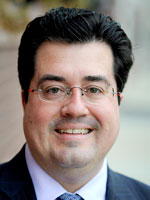
J.D. LaRock

Fiona Creed
By enrolling in Northeastern, you’ll gain access to students at 13 campus locations, 300,000+ alumni, and 3,000 employer partners worldwide. Our global university system provides students unique opportunities to think locally and act globally while serving as a platform for scaling ideas, talent, and solutions.
Below is a look at where our Law & Criminology alumni work, the positions they hold, and the skills they bring to their organization.
Where They Work
- City of Boston
- State Board of Education
What They Do
- Business Development
- Entrepreneurship
- Community and Social Services
What They're Skilled At
- Policy Analysis
- Legal Writing
- Public Speaking
- Legal Analysis
Learn more about Northeastern Alumni on Linkedin .
Related Articles

5 Tips for Choosing Your DLP Dissertation Topic

How to Get Hands-On Experience in Law & Public Policy

How to Become a Public Health Program Manager
| --> Master's | Save | |||||
| COMMITMENT | DURATION | TYPE | ||||
| --> Master's --> Professional Doctorate | Save | |||||
| COMMITMENT | DURATION | TYPE | ||||
| --> Master's --> Professional Doctorate | Save | |||||
| COMMITMENT | DURATION | TYPE | ||||
Support NYU Law
- JD Admissions
- Dual Degree Programs
JD/PhD and JD/MA Programs
New York University School of Law (Law) and Graduate School of Arts and Science (GSAS) offer coordinated dual degree programs leading to a Juris Doctor (JD) and either a PhD or MA degree in two Arts and Science disciplines:
Law and GSAS also offer dual degree programs leading to a JD and MA in the following disciplines:
- French Studies
- Latin American and Caribbean Studies
Law and GSAS also offer dual degree programs leading to a JD and PhD in the following disciplines:
- American Studies
- Comparative Literature
- Computer Science
- Hebrew and Judaic Studies
- Italian Studies
- Mathematics
- Middle Eastern and Islamic Studies
- Neural Science
- Psychology (Cognition and Perception)
Students enrolled in these dual degree programs will work closely with faculty advisors in both the School of Law and GSAS to develop an integrated program of study and research. The programs are particularly aimed at students interested in pursuing academic careers. We expect that students who complete the JD/PhD program will be strong candidates for faculty positions in both law schools and in arts and sciences programs. The JD/MA programs provide rigorous interdisciplinary training for students interested in legal academia, but also for students who plan to pursue other career paths related to law.
These coordinated programs reduce the amount of time required to complete both degrees. The School of Law will count 12 credits of GSAS coursework toward the total of 83 credits required for the JD degree, typically allowing dual degree students to complete their JD coursework in five semesters rather than the usual six. All coursework must be approved by the respective program to count towards the dual degree program. Likewise, some law school coursework will count toward the PhD and MA program requirements, allowing students to accelerate the completion of those degrees. For students in the JD/MA program, both degrees are typically conferred at the end of four years (eight semesters) rather than the usual five years to complete both degrees separately. For students in the JD/PhD program, the JD is typically conferred at the end of the fourth year, while the student continues to complete the PhD requirements.
Prospective dual degree students must apply independently to both the School of Law and GSAS and be admitted to both. Current law students or GSAS doctoral students may apply to enter a dual degree program during their first year. Students looking to start the JD/PhD program at GSAS should inquire with the School of Law about the program sequence. Please refer to the GSAS website for information regarding funding for PhD candidates.
Students interested in a dual degree program are encouraged to contact Amy Chu, Senior Director of Academic Services and Registration at the School of Law ( [email protected] or 212-998-6020) or Tania Barnes at GSAS ( [email protected] ) for more information.
© 2024 New York University School of Law. 40 Washington Sq. South, New York, NY 10012. Tel. (212) 998-6100
- Master of Science (M.S.)
Master of Laws (LL.M.)
- Advanced Certificate
- Cybersecurity and Data Privacy
Financial Compliance and Risk Management
Health Law and Healthcare Compliance
Human Resources: Law, Leadership, and Policy
Government Affairs and Advocacy
- Application Requirements
- Cost & Aid
- Virtual Events
- Schedule of Courses
- Career Services
- Academic Support
- Access to Campus
Online LL.M. Programs
Law Degree Required
|
|
|
|
24 | 7 Weeks | Aug 19 | $2,011* |
*Before Scholarship
The 100% online LL.M. at Albany Law School has been designed for legal professionals ready to sharpen their skills and expand their specialized knowledge of the law. Our expert practitioner faculty guide you in a unique curriculum designed around practical, 'learn it today, use it tomorrow' coursework, making you an invaluable asset in your field. With flexible pacing tailored to your needs, balance your studies around work and family commitments while advancing your career with specialized knowledge and skills.
Cybersecurity and Data Privacy
Find Your Perfect Fit
Our 100% online curriculum focuses on practical, situation-based learning, but figuring out which degree path you should take can be challenging. Answer a few quick questions, and we will help match you to the program that will give you the tools to achieve your goals.
Questionnaire
"The program's practical approach was a much different and enriching experience compared to my previous education. It wasn't just about theoretical knowledge; it was about applying what we learned to real-world situations, which has been incredibly valuable in my current role."
Marissa LaBelle, LL.M. '23

With five specialized programs and a wide range of electives, our LL.M. degree ensures that you'll expand your knowledge of the law in areas that are relevant to you. Our degrees' flexibility allows you to choose the classes that interest you the most, focusing on what will make you an indispensable asset to your clients.
Accreditation
Albany Law School is accredited by the Middle States Commission on Higher Education and the American Bar Association (which accredits only J.D. programs).
Albany Law Graduate Admissions [email protected] 518-445-2365 Schedule an Appointment
- Skip to main content
- Skip to main navigation
Degree Programs
Juris doctor.
The curriculum of Baylor Law's Juris Doctor program is structured to provide a logical progression of legal study from fundamental legal doctrines in first-year courses to increasingly more sophisticated and complex issues in second and third-year courses. You will find that the broad exposure to legal fundamentals and our curriculum's well-rounded education and training teach you to be an outstanding lawyer, prepared to pass the bar exam and sought after by legal employers.
Joint Degree Programs
One of the advantages of studying at Baylor Law is the opportunity to pursue multiple degrees simultaneously in a manner that is efficient and cost-effective.
To accommodate students who contemplate a career where business and law overlap, the Law School and the Hankamer School of Business offer a dual degree program that leads to the simultaneous award of Juris Doctor (JD) and Master of Business Administration (MBA) degrees.
The JD/MBA program strives to improve the effectiveness of both business managers and legal counsel for business entities by training each to understand the role of the other and the importance of their respective contributions to the successful operation of a business. JD/MBA students are encouraged to pursue a concentrated course of study at the Law School in Business Transactions or Business Litigation.
Students receive twelve hours of credit toward their JD upon the successful completion of the required MBA courses and twelve hours of elective credit toward their elective requirement for the MBA upon successful completion of law school coursework. Thus, JD/MBA students complete 114 quarter hours of law courses and twenty-four semester hours of graduate business courses. Since both degrees are awarded simultaneously, all requirements in both schools must be completed in order to receive either degree.
Students generally complete the dual JD/MBA program in three-and-a-half to four years. All MBA students begin the program by participating in a four-week set of classes called Business Frameworks. These classes serve as a primer for the MBA curriculum and consist of one credit hour of each of the following: accounting, finance, Excel, and statistics. JD/MBA students start the business portion of their coursework in July and with completion by May the following year.
Students must apply to, and be accepted by, both the Law School and the Business School. The application fee has been waived and scholarships are available for competitive applicants. An LSAT score will be considered in lieu of a GMAT/GRE score for applicants who have been accepted to Baylor Law.
To contact the Business School and for information about the application, click here .
To accommodate students who contemplate a career where healthcare and law overlap, the Law School and the Robbins MBA Healthcare Program offer a dual degree program that leads to the simultaneous award of a Juris Doctor (JD) and a Master of Business Administration (MBA) with a specialization in healthcare administration.
Healthcare has become an increasingly specialized area of the law, and healthcare administrators are integral to successfully managing hospitals, nursing homes, hospice facilities, insurance companies, provider networks, and government policy organizations. This dual degree program provides appropriate general background courses and specialized healthcare law classes while allowing students to examine healthcare administration's legal and business aspects from multiple perspectives drawn from a cross-section of multidisciplinary expertise.
Unlike many healthcare administration MBA programs, the Robbins MBA Healthcare Program requires a ninth-month paid Executive Residency with a leading, progressive health organization. With a residency placement rate of 100%, every student can receive guidance from well-qualified, practicing healthcare executives, apply and test administrative theory in practical work situations, and develop leadership skills in an actual healthcare organization.
Upon completing the required MBA-Healthcare Administration courses, students receive twelve hours of elective credit toward their JDs. Both degrees are awarded simultaneously upon meeting all requirements in both schools.
Students must apply to and be accepted by both the Law School and the Business School. The application fee has been waived, and scholarships are available for competitive applicants. An LSAT score will be considered in lieu of a GMAT/GRE score for applicants accepted to Baylor Law.
This dual degree program links the faculties, resources, and education of a nationally-recognized law school and a top-tier seminary, offering students an education that prepares them well for many leadership opportunities. Graduates will be fully qualified to serve in a traditional law practice or in a congregational setting. Beyond these contexts, the skill sets developed from this program will also allow graduates to serve in non-profit organizations, particularly those focused on human rights or in careers that provide legal advocacy for society’s underserved populations.
The dual JD/MDiv degree program requires students to meet the standard requirements of both degree plans. A prospective student must make regular applications for admission to and be accepted by the Law School and the Seminary. Once admitted to both schools, the student will declare their intent to enroll in the dual degree program with the Associate Dean for Academic Affairs of the Seminary and the Associate Dean of the School of Law.
For more information about the JD/MDiv degree, click here .
Students interested in governmental service at the federal, state, or local level can complete their law degree along with a Master of Public Policy and Administration (MPPA) degree offered by the Political Science Department of Baylor University. This dual degree program leads to the simultaneous award of Juris Doctor (JD) and Master of Public Policy and Administration degrees. While the JD program trains students to recognize, analyze, and formulate legal solutions to legal issues, the MPPA program develops students' abilities to work within the context of governmental entities that must confront more significant public policy issues. The JD/MPPA degree strives to improve the effectiveness of governmental leaders in administrating massive, complex regulatory or benefit programs.
Students receive twelve hours of elective credit toward their JDs upon completing the MPPA requirements and twelve hours of credit toward their elective requirement for the MPPA upon successful completion of law school coursework. Thus, JD/MPPA students complete 114 quarter hours of law and twenty-four semester hours of graduate work. Since both degrees are awarded simultaneously, all school requirements must be met to receive either degree.
Students must make regular applications for admission to and be accepted by both the Law School and the Graduate School. All applicants must take the GRE and the LSAT.
For more information about applying to the Graduate School, click here .
Baylor is the only law school in Texas and one of only a few law schools in the nation to offer a dual degree program that leads to the simultaneous award of the Juris Doctor (JD) and Master of Taxation (MTAX) degrees. JD/MTAX students receive a broad-based legal education in the Law School. At the same time, the Hankamer School of Business Master of Taxation Program provides students with an in-depth study of all major aspects of taxation. Graduate tax courses include tax research and planning, tax practice and procedure, advanced individual taxation, corporations, partnerships and S-corporations, and international, state, and local taxation. JD/MTAX students take Estate Planning at the Law School. Students desiring a career in taxation (either planning or litigation), business planning and transactions, or estate planning would benefit from both degrees. JD/MTAX students are encouraged to pursue a concentrated study at the Law School in Business Transactions, Estate Planning, or Business Litigation.
Students receive twelve hours of elective credit toward their JDs upon completing the required MTAX courses and twelve hours of credit toward their elective requirement for the MTAX upon completing Law School coursework. Thus, JD/MTAX students complete 114 quarter hours of law and nineteen semester hours of graduate tax. Since both degrees are awarded simultaneously, all school requirements must be met to receive either degree.
Students with adequate accounting backgrounds can complete the dual JD/MTAX program in thirty-six months. Students with a non-accounting undergraduate degree may be required to complete some basic-level accounting courses before enrolling in graduate tax courses.
Students must make regular applications for admission to and be accepted by the Law School and the Business School. All applicants must take the GMAT and the LSAT.
For more information about the MTax program, click here .
Baylor Law School
Building Hours Monday - Friday: 8:00am - 5:00pm Saturday - Sunday: Closed Holidays: Closed
Sheila & Walter Umphrey Law Center 1114 South University Parks Drive One Bear Place #97288 Waco, Texas 76798
- General Information
- Academics & Research
- Administration
- Gateways for ...
- About Baylor
- Give to Baylor
- Pro Futuris
- Social Media
- College of Arts & Sciences
- Diana R. Garland School of Social Work
- George W. Truett Theological Seminary
- Graduate School
- Hankamer School of Business
- Honors College
- Louise Herrington School of Nursing
- Research at Baylor University
- Robbins College of Health and Human Sciences
- School of Education
- School of Engineering & Computer Science
- School of Music
- University Libraries, Museums, and the Press
- More Academics
- Compliance, Risk and Safety
- Human Resources
- Marketing and Communications
- Office of General Counsel
- Office of the President
- Office of the Provost
- Operations, Finance & Administration
- Senior Administration
- Student Life
- University Advancement
- Undergraduate Admissions
- Graduate Admissions
- Baylor Law School Admissions
- Social Work Graduate Programs
- George W. Truett Theological Seminary Admissions
- Online Graduate Professional Education
- Virtual Tour
- Visit Campus
- Alumni & Friends
- Faculty & Staff
- Prospective Faculty & Staff
- Prospective Students
- Anonymous Reporting
- Annual Fire Safety and Security Notice
- Cost of Attendance
- Digital Privacy
- Legal Disclosures
- Mental Health Resources
- Web Accessibility
Covering a story? Visit our page for journalists or call (773) 702-8360.
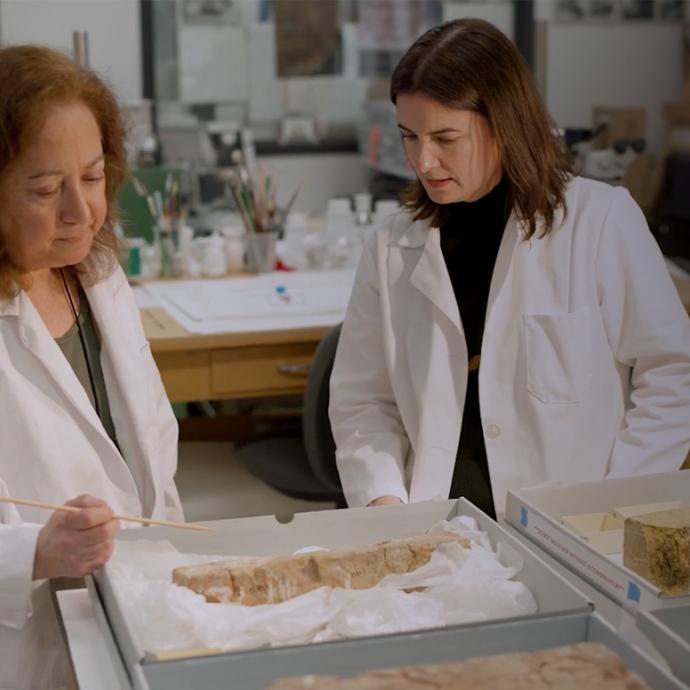
Inside the Lab
Top stories.
- UChicago alum named 2024 Knight-Hennessy Scholar
Scientists call for ‘major initiative’ to study whether geoengineering should be used on glaciers
- A new catalyst can “recycle” carbon dioxide into useful chemicals
Coase-Sandor Institute for Law and Economics celebrates decade of impact
More than a decade ago, the University of Chicago Law School launched a first-of-its kind institute that aimed to build upon its long tradition of excellence as the birthplace of law and economics.
The Coase-Sandor Institute for Law and Economics recently marked its ten-year anniversary with an event that brought together faculty, students, and community members, as well as guests of honor Richard and Ellen Sandor. The celebration featured several faculty and student guest speakers, who shared their insights on the transformative nature of the institute’s support of their research.
The institute first launched in 2011, as the Institute for Law and Economics, with two main goals: to support faculty research in the field and provide a platform for disseminating that research to audiences beyond the legal academy. In 2013, the Sandors made an extraordinary $10 million gift in honor of Richard Sandor’s mentor, Nobel laureate Ronald Coase. This transformative gift revitalized the institute’s efforts, propelling it to new heights over the last decade.
“In its first decade, the Coase-Sandor Institute propelled the University of Chicago Law School to the forefront of the next generation of law and economics scholarship and ideas,” said Thomas J. Miles, dean and the Clifton R. Musser Professor of Law and Economics. “Through the institute, our faculty have produced a spectacular body of ideas and scholarship in law and economics and have brought these ideas to the world in new ways.”
Over the past decade, the Coase-Sandor Institute for Law and Economics has become a hub of scholarly productivity, with 34 UChicago faculty members affiliated, producing a staggering 1,262 publications, including books, book sections, and journal articles. The institute’s Law & Economics Working Paper Series on the Social Science Research Network boasts more than 300 working papers with nearly 800,000 downloads.
Another cornerstone initiative of the institute has been the Summer Institute, a two-week-long crash course in law and economics for academics. Over the course of its eight-year run, the Summer Institute hosted more than 500 participants from 26 different countries, fostering a unique global exchange of ideas in law and economics.
“We created something that never existed in a law school before, and that is a data analysis laboratory,” said Omri Ben-Shahar, the Leo and Eileen Herzel Distinguished Service Professor of Law and the faculty director of the institute. “We hired research assistants specially trained to help faculty working with large datasets. The lab really created the capacity to support faculty research in law and economics and the demand over time kept growing.”
The institute’s data laboratory also saw a significant growth in tools and the hiring of more researchers with specific expertise in designing empirical studies to help faculty execute their research.
“We are now in an era where a lot of people who are studying law with the tools of social science are using more rigorous methods, and with the advent of AI and machine learning models, all of these tools have an enormous effect and potential in understanding laws,” said Ben-Shahar. “This increased support has increased the production of research—which has led us to focus on finding more audiences for the application of that research, particularly in the global scene where law and economics is still relatively new.”
Celebrating ten years of scholarly innovation
Zhuang (John) Liu, an associate professor of law at Hong Kong University, who received his Ph.D. from the University of Chicago, was one of the guest speakers at the Coase-Sandor Institute’s ten-year celebration. Via Zoom, he shared the global impact of the institute, explaining how his participation in the summer program as a young scholar a few years go not only changed the trajectory of his academic life, but has since influenced generations of young scholars and students in China.
“The practice of including young scholars and students in the summer program and also in the junior faculty workshop has proven to be immensely successful,” said Liu. “These young scholars trained at Chicago have brought about a wave of innovation and legal research in China. They have pioneered new research areas, which were previously nonexistent in the country. For example, they started using massive judicial decision data to study Chinese law and Chinese judiciary.”
The magnitude of Coase-Sandor’s impact on young scholars was echoed by Ana Vasilj, a JD and Economics Ph.D. candidate, who was another guest speaker at the event. She had recently attended the American Association of Law Schools (AALS) conference in D.C. in January, where she presented her research, thanks to the support of Coase-Sandor.
“I feel like us really young researchers are viewed as a high-risk stock,” said Vasilj. “Very few people are willing to invest in us, so I was struck by how welcoming and enthusiastic the Coase-Sandor Institute was and how supportive they were in me going to present my research at AALS.”
Originally from Croatia, Vasilj came to UChicago from Cambridge University to pursue her master’s degree, which drew her to the Economics PhD, and subsequently, to the JD program. “I see the Law School as a place where you don’t just learn what the law is—you learn to recognize it as a set of logistical tools to achieve policy goals X, Y, and Z” she said.
The Sandors reflected upon the tremendous impact that their generous gift has made.
“Ellen and I are absolutely thrilled with the research you are doing,” said Richard Sandor at the ten-year celebration event. “It matches every expectation we had about a free market for ideas. This was the dream. All we wanted to do is to provide resources to students and faculty so they can choose whatever they want to do to advance knowledge and enrich humanity.”
As the institute looks to the future, its legacy of innovation and collaboration promises to help redefine the frontiers of law and economics. Ben-Shahar sees AI and machine learning as playing a key role in breaking these new frontiers.
“The question is: How will law professors who are not trained in computer science or statistics interact with the potential of research on how AI will affect the law?” he said. “We will need to enrich our data lab with trained statisticians, and it will be important to continue to support the collaboration of faculty here with faculty in other departments, especially those in computer science.”
—Adapted from a story first published on the Law School website.
Get more with UChicago News delivered to your inbox.
Related Topics
Latest news.

Recommended Reading
Eight books to add to your summer 2024 reading list
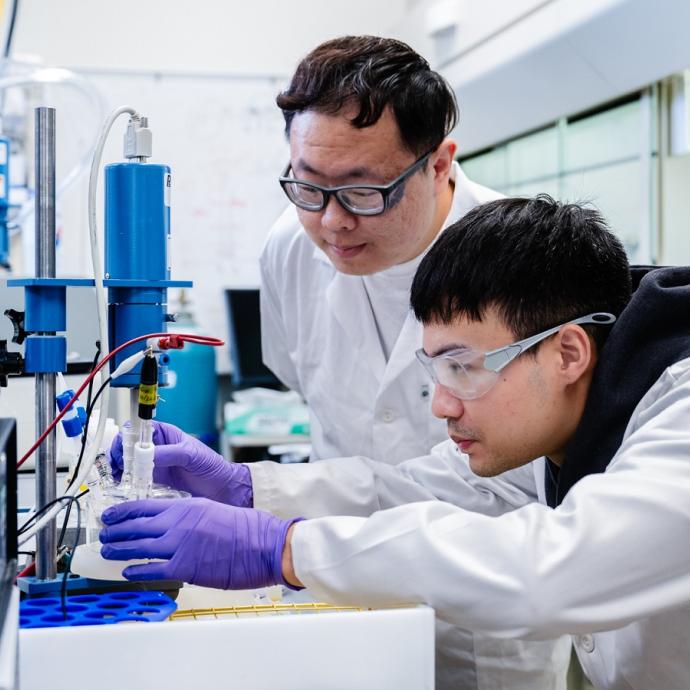
A new catalyst can “recycle” carbon dioxide into commonly used chemicals
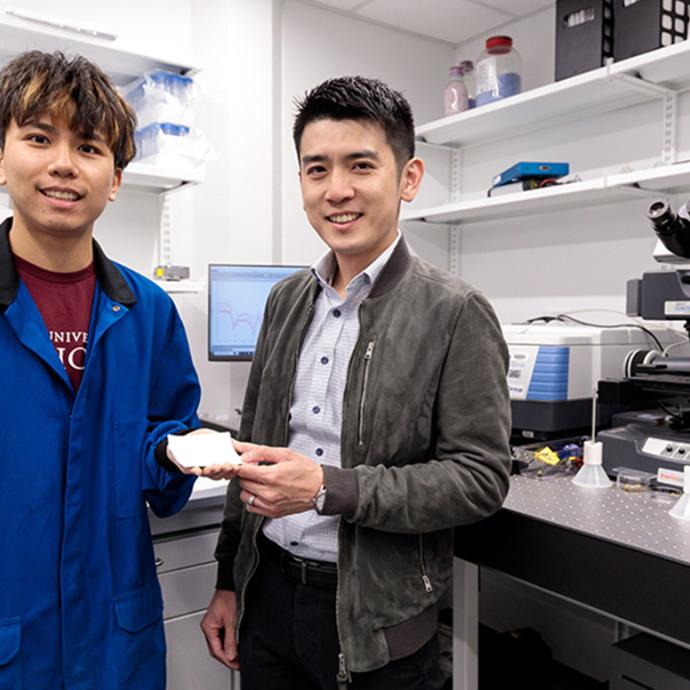
Materials science
UChicago researchers invent new fabric that reduces heat

Go 'Inside the Lab' at UChicago
Explore labs through videos and Q and As with UChicago faculty, staff and students
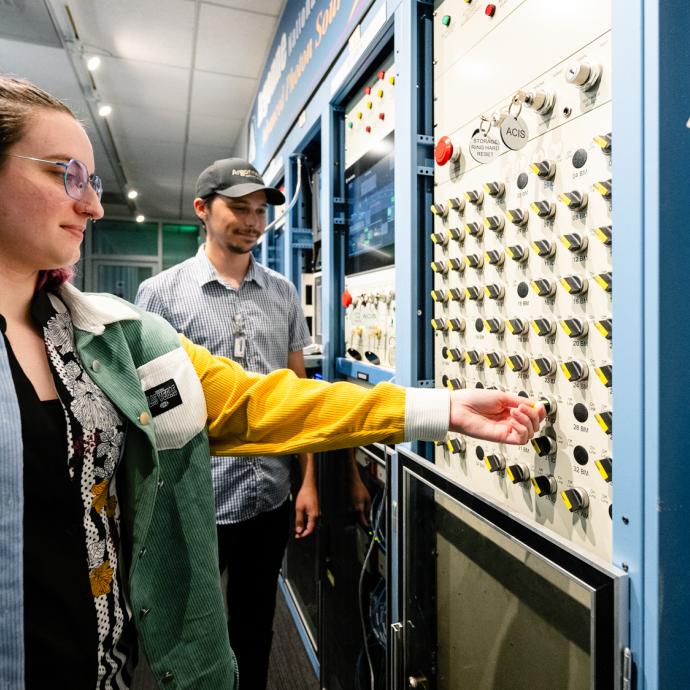
Upgraded synchrotron starts up at Argonne National Laboratory
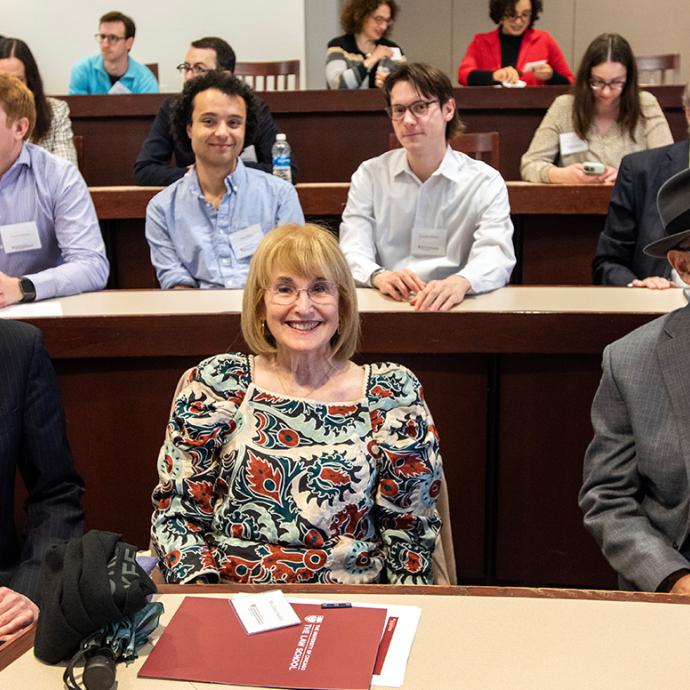
University of Chicago Law School
Around UChicago
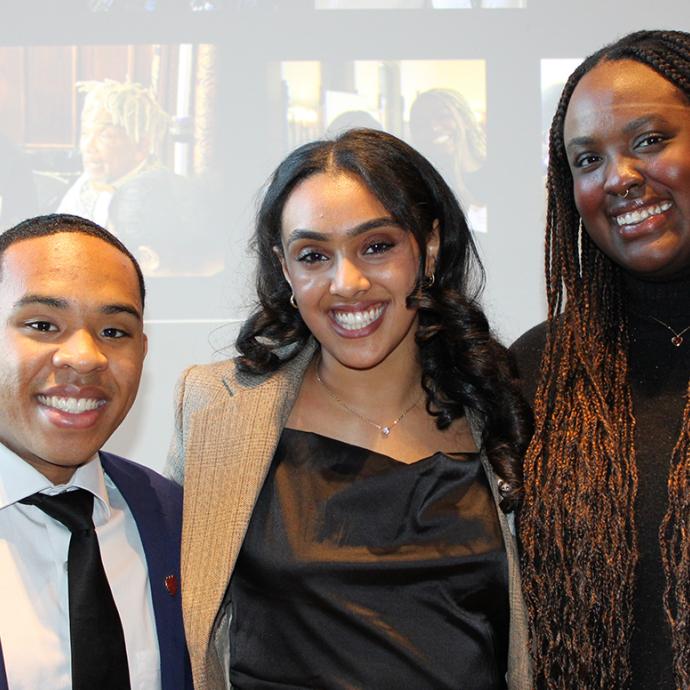
First student awarded scholarship in honor of historian, civil rights activist Timuel D. Black
Quantrell and PhD Teaching Awards
UChicago announces 2024 winners of Quantrell and PhD Teaching Awards
Campus News
Project to improve accessibility, sustainability of Main Quadrangles
National Academy of Sciences
Five UChicago faculty elected to National Academy of Sciences in 2024
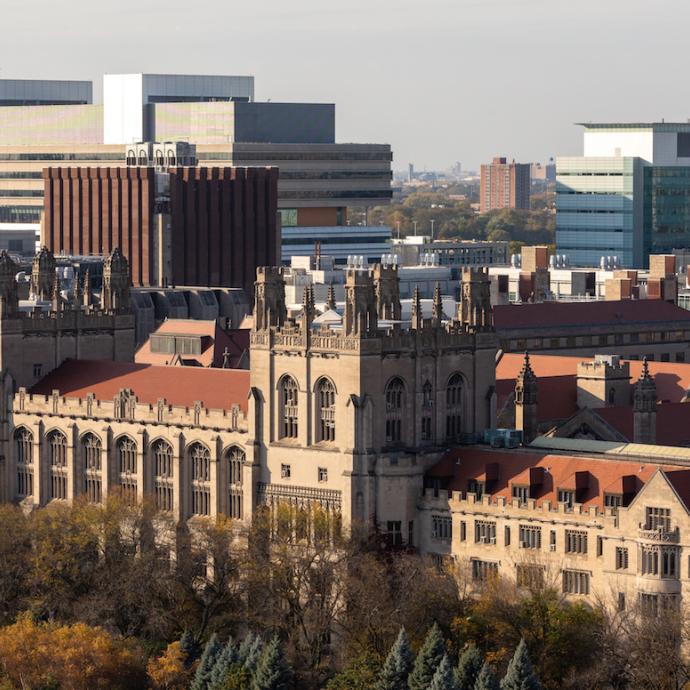
Three UChicago undergraduate students earn 2024 Goldwater Scholarships

Kavli Prize
UChicago President Paul Alivisatos shares 2024 Kavli Prize in Nanoscience
Biological Sciences Division
“You have to be open minded, planning to reinvent yourself every five to seven years.”

Distinguished Service Professorships
Thirty-one UChicago faculty members receive named, distinguished service professorships in 2024
Watch CBS News
Law enforcement swarm home of Trump rally shooter, Thomas Matthew Crooks, in Bethel Park
By Meghan Schiller , Patrick Damp
Updated on: July 14, 2024 / 10:32 AM EDT / CBS Pittsburgh
PITTSBURGH (KDKA) - Law enforcement swarmed a Bethel Park home believed to be connected to the shooter in the assassination attempt of former President Donald Trump .
Public records show the home, located on Milford Drive in Bethel Park, is that of 20-year-old Thomas Crooks, who federal law enforcement officials identified as the shooter who opened fire at the rally in Butler on Saturday evening.
We are out here in Bethel Park near the home of the gunman, 20 year old Thomas Matthew Crooks. We are live with new details that came in while you were sleeping starting at 6:30 on @KDKA pic.twitter.com/nrwRFNKXce — MEGHAN SCHILLER (@MeghanKDKA) July 14, 2024
The road to the home was shut down on Sunday and neighbors have been evacuated.
One neighbor, who lives only a few homes down the road from the gunman, said police evacuated from her home in the middle of the night. She was told noon on Sunday was the earliest she could be allowed back into her home.
#BREAKING : Two of my contacts in Bethel Park just sent me two recent yearbook photos of the gunman, Thomas Crooks. We are LIVE outside the street where he lived, as law enforcement swarms his neighborhood after evacuating those who live nearby. @KDKA pic.twitter.com/lFi1OtW5Yu — MEGHAN SCHILLER (@MeghanKDKA) July 14, 2024
"They asked us to leave our house. They told us it was a state of emergency, no warning, just a knock on the door in the middle of the night," Kelly Little said. "They told us we could come back in a couple of hours, likely."
Bethel Park Police said there is a bomb investigation surrounding Crooks's home.
Bethel Park School District confirms Crooks was a 2022 graduate
In a statement provided to KDKA from Bethel Park School District, they said that Crooks was a 2022 graduate and pledged to work with law enforcement as the investigation continues.
Their full statement is below.
Bethel Park School district can confirm that the alleged shooter in the July 13, 2024, assassination attempt on former President Donald J. Trump is a graduate of Bethel Park High School. Thomas Matthew Crooks graduated from Bethel Park High with the Class of 2022. The school district wishes to express its sincere wishes for a speedy and full recovery for Mr. Trump and for those in attendance at the Saturday event who may have been physically harmed or emotionally impacted by these tragic events. We offer special condolences to the family of at least one attendee who was killed. Our thoughts and prayers are with you at this difficult time. Our school district will cooperate fully with the active law enforcement investigation surrounding this case, and as such, we are limited in what we can publicly disclose. Moving forward, we will work closely with law enforcement investigators and share information as appropriate with respect to school district policies, the active investigation, and law enforcement protocols.
Gunman identified, killed by Secret Service
The gunman, Crooks, who tried to assassinate the former president was a registered Republican but previously made a $15 donation to a Democratic-aligned group, according to public records.
Crooks opened fire with an AR-style rifle from about 400 feet away from the rally stage with video showing his position on a roof outside of the security perimeter.
One attendee said he saw the suspect.
"We noticed the guy crawling, bear-crawling, up the roof of the building beside us," he said. "We're standing there, we're pointing at the guy crawling up the roof. He had a rifle, we could clearly see him with a rifle."
A Secret Service sniper shot and killed Crooks.
At this time, the FBI Pittsburgh has not yet identified or released a motive.
This is a developing story, stay with CBS Pittsburgh for the latest.
- Pennsylvania
- Donald Trump
- Butler County

Meghan Schiller is an Emmy-nominated journalist who joined KDKA in October 2017. She's thrilled to be back in her hometown and reporting at the station she grew up watching.
Featured Local Savings
More from cbs news.

Trump says bullet "pierced the upper part of my right ear" at rally

NYC leaders blast "unimaginable" Donald Trump assassination attempt

Security increased at Trump Tower in NYC after Pa. rally shooting

N.Y. politicians call Trump rally shooting "disgusting," "horrific"
- Report a Concern
- Calendar of Events, Dates, and Deadlines
- Current Graduate Students
- Alumni and Giving
- Rankings and Recognition
- All Graduate Programs at our Campuses
Graduate Degree Programs
- Certificate Programs
- Interdisciplinary Graduate Programs (OIGP)
- University Academic Catalog
- Course Information
- Publications
- Graduate Programs Office
- Office of Graduate Assistance (OGA)
- Guidelines for Graduate Student Mentoring and Advising
- Prospective Students
- Preparing for Graduate Studies
- Graduate Program Requirements
- Why Choose Purdue?
- Tuition & Fees
- How to Apply
- Check Application Status
- Transcript Upload Tips
- Admitted Students
- Visit Campus
- Global Ambassadors
- Purdue Graduate Student Center
- International Students
- Request Information
- Fellowships
- Professional Development
- Information Management and Analysis
- Data Requests
- Database Project
The Persistent Pursuit of Higher Education
- Current Students
- Faculty and Staff
Take your next giant leap
- Graduate Programs at Four Campuses
- Tuition and Fees
- Admissions FAQ
Our Commitment to Graduate and Professional Students
Our persistent pursuit of scholarly excellence is powered by our varied graduate and professional programs. Purdue is committed to maximizing the success of and support for graduate and professional students as well as postdoctoral scholars across all departments and colleges.
- Eric Barker, Associate Provost for Graduate Programs (Acting)

Professional Development Workshops
Conquer your Purdue experience, learn how to navigate the job market, or crack open some life hacks. Sign up for one of our 350+ free professional development workshops today!
VIew Workshops
All Events, Dates, and Deadlines
Students and Scholars: By the numbers
Graduate Students

Find more stats at the Data Dashboard
*Record high for category by count
Graduate Student Support
The Office of the Vice Provost for Graduate Students and Postdoctoral Scholars provides a range of services, programs, and events to support the whole person—to empower graduate students to address the complex challenges of the day and build a better tomorrow together.

Empowering Students
Seeking funding? Apply for travel, small research, or childcare grants or get help writing grant proposals and fellowship applications . Not finding the right fit? Earn a degree from one of our interdisciplinary graduate programs . Students facing a sticky situation can consult with our Office of Graduate Assistance .

Connecting Students
The Purdue Graduate Student Center is home to the Purdue Graduate Student Government and offers space to graduate students for meetings, studying, and socializing. Find support and like-minded peers in a graduate student organization , cultural and resource center or diversity program . Students with families connect via our Graduate Parent Support Network .

Transforming Students
Advance your leadership, communication, professional, academic, and life skills. Attend one of our 350 professional development workshops , showcase your ability to summarize your research, or publish your work in InnovatED . Craft your individual development plan . Explore your passions and make a successful transition to the job market.
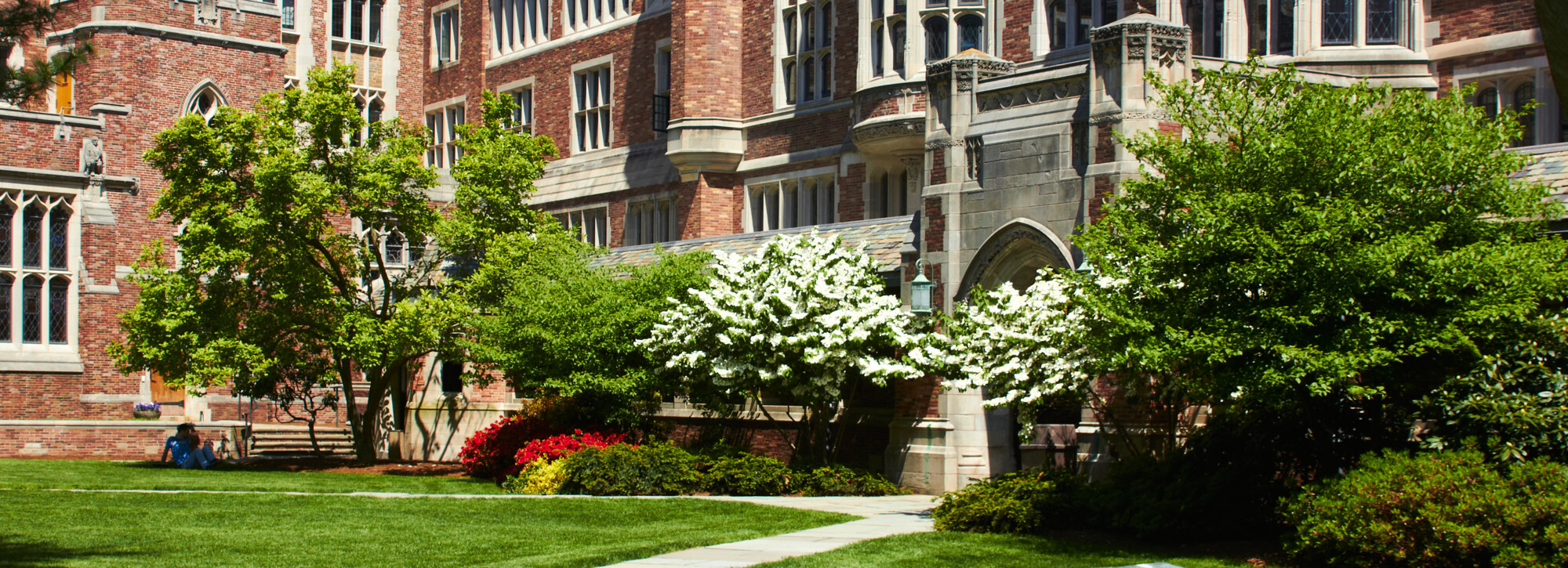
Ph.D. Common Questions
1. How do you look upon practice experience in applicants?
Practice experience can be a useful qualification for admission, but it is not required. Applicants must complete their J.D. degree before enrolling in the Ph.D. in Law program. This means that students may apply during their third year of law school, but most applicants will have had at least one year of post-law school experience of some kind. Often that experience will be a clerkship, but it may also include law practice, a public interest fellowship, government work, or even experience in a pursuit largely unrelated to law. The Ph.D. Admissions Committee also welcomes applications from candidates with a number of years of post-law school experience. Applicants who have spent more than a couple of years after law school in practice should relate their practice experience to their scholarly agenda or use their personal statements to explain their change in direction.
2. I have a clerkship, or I intend to apply for clerkships, following graduation. Can I take a leave from the Ph.D. program to take a clerkship?
While we are pleased to welcome applications from students in their third year of law school, many applicants will have spent at least one year after law school in a clerkship. We recognize that the continuing disarray in the clerkship market has affected the post-graduate planning for many students, and we will offer the possibility of a leave of absence during the program to take up a clerkship opportunity. Applicants to the Ph.D. program should be candid about their clerkship plans in their applications and should keep the Law School's Assistant Dean for Graduate Programs informed of any developments that occur after they submit their applications.
3. What should I submit as my writing sample? Can I submit a brief or other piece of practical legal writing?
Your writing sample should be the piece of writing that is the strongest evidence that you will complete an excellent dissertation on the subject you have proposed. This might be a paper you wrote in law school, a student note, or even a law review article you have already published. Your writing sample need not be on the same subject as your research proposal, but it may be helpful if it is. Except in unusual circumstances, co-authored works will not be accepted.
If you wish, you may submit a piece of practical legal writing as an additional writing sample, but you should also submit a piece of legal scholarship. The Ph.D. in Law program is designed to prepare candidates for careers in legal scholarship, and your prior legal scholarship is the best evidence of your future potential.
Please note that your writing sample should be no longer than the equivalent of 30 published pages (or roughly 15,000 words)—you may need to select an excerpt from a longer article or paper.
4. I do not have a J.D. degree from a U.S. law school, but I have a first law degree from a university outside the United States. Can I apply for the Ph.D. in Law program?
The Ph.D. in Law program at Yale Law School is designed specifically for candidates with J.D. degrees from U.S. law schools. You may, however, consider applying for admission to Yale Law School's LL.M. degree program. For more information, please consult the LL.M. program's website .
5. How is the Ph.D. in Law degree related to the J.S.D. degree?
Both are doctoral degrees, which are the highest academic degrees in law awarded by Yale University, but the programs have different structures and are designed for different purposes. The more structured Ph.D. program is designed specifically for students whose first degree in law is a J.D. from a U.S. law school, and the Ph.D. is formally awarded by Yale University's Graduate School of Arts and Sciences . The J.S.D. degree is designed principally for students who received their first degree in law from a non-U.S. institution and subsequently received their LL.M. at Yale Law School. Unlike the Ph.D., the J.S.D. is awarded by Yale Law School, not the Graduate School.
6. What if I have more questions? Whom should I contact?
If your question is not answered on this website or on the Graduate School’s website, you may e-mail questions to Gordon Silverstein, Assistant Dean for Graduate Programs, at [email protected] .
Section Menu
Undergraduate
Entrepreneurship
- Thayer Express
- Undergraduate Admissions
- Graduate Admissions
Undergraduate Engineering at Dartmouth
Bachelor's Degrees
Undergraduate Experience
- Engineering Design
- Financial Aid & Funding
- Life After Dartmouth
- Project Spaces & Labs
- Research & Entrepreneurship
- Student Life & Housing
- Study Abroad
Quick Links
- Academic Calendar
- Career Services
- Course Descriptions
- Course Schedules
- Majors & Modified Majors
- Programs & Courses Guide
Program Areas
Graduate Engineering at Dartmouth
Master's Degrees
Doctoral Degrees
Graduate Experience
- Collaborative Programs
- Degree Outcomes
- Help & Support
- Online Education
- Scholarships, Fellowships, & Grants
- Admissions Events
- Student Handbook
Engineering Research at Dartmouth
Research by Program Area
- Active Projects
- Laboratories
- Research News
- Undergraduate Research
Engineering Entrepreneurship at Dartmouth
Startups listed by
Patents listed by
Links & Resources
- Dartmouth NSF I-Corps Program
- Dartmouth Tech Transfer
- Entrepreneurship News
- Magnuson Center for Entrepreneurship
- Office of Entrepreneurship & Technology Transfer
- PhD Innovation Program
- Tuck School of Business
Dartmouth Engineering Community
Community Info
About Dartmouth Engineering

Home | Graduate | MEng | Online Computer Engineering
Online MEng: Computer Engineering
Earn Dartmouth's Master of Engineering in Computer Engineering (MEng: CE) from anywhere in the world. Our fully online program will help build your expertise in intelligent systems—the foundational technology for artificial intelligence (AI), virtual and augmented reality, and autonomous robots and cars. Offered in partnership with Coursera , a leading online platform, the MEng: CE is for engineers seeking a high-impact graduate degree with the flexibility of an online program.
In this podcast, Dean Alexis Abramson describes how she and her team created Dartmouth's first fully online degree, offering unprecedented access to an Ivy League education in a rapidly evolving field.
Online MEng: CE
Academic Overview
Request Info
Attend an Event
How to Apply
Learn more about our highly curated, online MEng: CE curriculum

Graduate Outcomes
Endless opportunities, from academia to high-demand careers.

Admissions & Financial Aid
Learn more about how to apply and options for funding your degree.

The Dartmouth Difference
The online Master of Engineering in Computer Engineering (MEng: CE) offers world-class education you expect from Dartmouth, with the flexibility of a fully online degree.
Engineer without Boundaries
Designed for working professionals, the online MEng: CE provides valuable expertise and project-based experience to position graduates for technical leadership in a growing field. You'll be taught and supported by cross-disciplinary faculty experts and industry leaders throughout your academic journey.
ACADEMIC OVERVIEW
"The flexibility of the online program allows talented people to pursue a master's degree within the context of a busy life, in a rapidly evolving field that is increasingly impacting so many aspects of our world."
—Eugene Santos Jr., Professor of Engineering and Faculty Director, Master of Engineering Program
Dartmouth Experience
From start to finish, you'll be part of a welcoming Dartmouth Engineering community with dedicated orientation and programming, and access to academic support and career services, along with a powerful Dartmouth alumni network to help you thrive in your courses and beyond.
GRADUATE OUTCOMES
Curated curriculum, developed and taught by Dartmouth Engineering faculty.
Pursue at your own pace, at a time and location that fits your busy schedule.
Complete your degree in as little as 15 months, or at a pace that works for you.
For questions about courses or the degree program, contact:
Enrollment Advisor [email protected]
For questions about your application or financial aid, contact:
Graduate Admissions [email protected]
See our list of frequently asked questions (FAQs) .
From virtual assistants to virtual reality, intelligent systems are embedded in our everyday lives, and this program creates engineers who understand both the technology and the human impact.
— Alexis Abramson Dean, Thayer School of Engineering at Dartmouth

An official website of the United States government, Department of Justice.
Here's how you know
Official websites use .gov A .gov website belongs to an official government organization in the United States.
Secure .gov websites use HTTPS A lock ( Lock A locked padlock ) or https:// means you’ve safely connected to the .gov website. Share sensitive information only on official, secure websites.
FY24 Public Safety Officers’ Benefits (PSOB) National Law Enforcement Survivor Support and National Firefighter and First Responder Survivor Support Programs Competitive Grant Solicitation
Download PDF, 396.54 KB
With this solicitation, the Bureau of Justice Assistance seeks to support the families of fallen and catastrophically injured law enforcement officers, firefighters, and other first responders by providing assistance with filing applications for federal benefits for line-of-duty deaths and catastrophic injuries. This program also provides survivor peer support, counseling services, and resources to survivors of fallen law enforcement officers, firefighters, and other first responders nationwide. Additionally, the program recognizes families and fallen officers at memorial events.
Solicitation Categories:
- Category 1: Law Enforcement Survivors Support Program
- Category 2: Fallen Firefighters and First Responders Support Program
Eligible Applicants:
- Nonprofits having a 501(c)(3) status with the IRS, other than institutions of higher education
- Nonprofits that do not have a 501(c)(3) status with the IRS, other than institutions of higher education
- For-profit organizations other than small businesses
- Native American tribal organizations (other than federally recognized tribal governments)
- Small businesses
See the solicitation for additional opportunity and eligibility details, as well as directions on how to apply.
Similar Opportunities
- FY24 Justice Information Sharing Training and Technical Assistance Program
- FY24 Visiting Fellows Program
- FY24 Justice Reinvestment Initiative: State-level Training and Technical Assistance
- Skip to primary navigation
- Skip to main content
- Skip to footer

University of Hawaii William S. Richardson School of Law
Centers & Programs
Distinguished programs.

- Admissions & Aid Overview
Get Started
- How to Apply
- Online Application Status Notifications
- Law School Visit Request
- Financial Aid
- Grants & Scholarships
- Residency Requirements
- Video Resources
- Admissions FAQ

- Faculty & Research Overview
- Faculty & Staff Directory
- Career Services Overview
- For Students
- For Employers
- Employment Statistics
- Social Justice
- Ways to Give
- Make a Gift
News & Events
- Trending at Richardson
- News Archive
Around Richardson
- Photo Galleries
- Publications
For Meetings & Events
- Meeting Room Calendar
- Reserve a Room
- Dean Nelson Event Attendance Request Form
- Events Calendar
- Future Students
- Faculty & Staff
- Event Calendar
More in Master of Laws (LLM)
Master of laws (llm) program.
A Master of Laws, or LLM, is a graduate qualification in the field of law. This internationally recognized postgraduate law program allows lawyers to gain advanced, specialized legal training by choosing classes within a specific area of law to develop their expertise. In addition to the academic advantages an LLM offers, students also have opportunities to network with colleagues and professors and build a lasting, professional network. Hawaii’s LLM Program is open to graduates with either a U.S. JD or a foreign law degree.
Our LLM Program allows a great deal of flexibility, allowing students the freedom to choose their classes, in consultation with our LLM Faculty Advisor. Other than our two specialized LLM courses for foreign lawyers, our LLM students take the same classes as our JD students. LLM students may choose to pursue a General LLM or an LLM with a Specialization.
Some limited-enrollment and legal writing or clinical/skills courses may not be available to LLM students.
General LLM Program information and requirements
- a minimum of 24 credits are required to graduate
- F-1 students must take a minimum of 12 credits per semester
- LLM students take Introduction to American Law in their first semester (exempt for U.S. JD graduates or if waived by LLM Faculty Advisor)
- Courses already taken as part of a U.S. JD Program may not be repeated for LLM Program credit, except with permission from the Associate Dean for Academic Affairs
- up to six (6) graduate-level (600 and above) credits from other UH departments
- LAW 576 Directed Study and Research (limit 3 credits per semester)
- LAW 520 Advanced Legal Studies – selected topics presented by WSRSL faculty or visiting faculty focused on their areas of specialty or expertise.
UH Class Schedule
Classes designed for students with foreign law degrees
- Introduction to American Law – General introduction to the fundamental principles and distinctive aspects of the American legal system and its institutions. LLM students only
- U.S. Legal Research and Writing – Introduction to the basic principles of American legal research and writing. Students review techniques of case and statutory analysis and learn to write a professional legal memoranda and client opinion letters. LLM students only
Legal English preparation and support
- Legal Oral Communication course
- Center for Academic Spoken English (CASE) : provides free oral communication support for members of the UH Mānoa community who speak English as an additional language.
- The Writing Center at Mānoa : is a collaborative environment which offers writing consultations free of charge to anyone affiliated with the UH – undergraduate and graduate students, faculty, staff, and visiting scholars.
- East-West Toastmasters : organizes monthly meetings of students, faculty, and staff of UH Mānoa, as well as people from the community to develop public speaking skills.
LLM Specializations
Students enrolled in Hawaii’s LLM Program may choose an optional specialization to deepen their understanding and expertise in a specific area of law.
LLM Specialization requirements:
- 4 courses within the specialty
- 10 credits within the specialty
- any required courses within the specialty
Possible courses: LWPA 514 Law & Society in Japan LWEV 528 International Environmental Law LWPA 553 Asian Pacific Insolvency Law LWPA 556 Asian Comparative Labor Law LAW 572 International Protection of Human Rights LWPA 577 Japanese Business Law LWPA 578 Chinese Business Law LWPA 586 Law & Society in China LWPA 587 Comparative Law LWEV 593 International Ocean Law LWPA 594 Pacific Islands Legal Systems With LLM Faculty Advisor approval, student may take:
Note: not all courses are offered every semester
Possible courses:
LAW 507 Employment Discrimination LWEV 528 International Environmental Law LWEV 530 Climate Change Law & Policy LAW 533 Constitutional Law I LAW 534 Constitutional Law II LAW 537 Constitutional Law: Critical Race Perspectives LAW 547 Gender: Law & Conflicts LAW 548 Immigration Law LWPA 556 Asian Comparative Labor Law LWPA 581 Native Hawaiian Rights LWPA 585 International Law LWPA 587 Comparative Law With LLM Faculty Advisor approval, student may take:
- LAW 576 Directed Study and Research (limit 3 credits per semester)
- LAW 520 Advanced Legal Studies – selected topics presented by WSRSL faculty or visiting faculty focused on their areas of specialty or expertise.
LWEV 503 Wildlife & Natural Resources Law LWEV 512 Environmental Compliance & Regulated Industries LWEV 528 International Environmental Law* LWEV 530 Climate Change Law & Policy LAW 549 Admiralty Law LWEV 588 Legal Aspects of Water Resources & Control LWEV 592 Domestic Ocean & Coastal Law LWEV 593 International Ocean Law LAW 503 Historic Preservation Law LAW 561 Administrative Law LAW 580 Land Use Management & Control LWPA 585 International Law LWEV 582 Environmental Law* LWEV 588 Legal Aspects of Water Resources & Control LAW 592 Domestic Ocean & Coastal Law
With LLM Faculty Advisor approval, student may take:
LAW 507 Employment Discrimination LAW 508 Negotiation & Alternate Dispute Resolution LAW 509 Contracts I LAW 510 Contracts II LAW 515 Business Reorganization in Bankruptcy LAW 531 Business Associations LAW 535 Intellectual Property LAW 545 Licensing Intellectual Property LAW 507 Employment Discrimination LAW 508 Negotiation & Alternate Dispute Resolution LAW 509 Contracts I LAW 510 Contracts II LAW 515 Business Reorganization in Bankruptcy LAW 531 Business Associations LAW 535 Intellectual Property LAW 545 Licensing Intellectual Property LAW 550 Corporate & Partnership Taxation LWPA 553 Asian Pacific Insolvency Law LAW 554 Secured Transactions LAW 558 Corporate Finance LAW 559 Labor Law LAW 562 Debtors’ & Creditors’ Rights LAW 565 Securities Regulation LAW 567 Federal Income Taxation LAW 569 Sales LWPA 577 Japanese Business Law LWPA 578 Chinese Business Law LWPA 579 International Business Transactions LAW 589 Labor & Employment Law LAW 595 Internet Law & Policy LWPA 596 International Intellectual Property
LAW 508 Negotiation & Alternative Dispute Resolution LAW 572 International Protection of Human Rights LWPA 585 International Law LWPA 587 Comparative Law
Courses offered through the Matsunaga Institute for Peace & Conflict Resolution PACE 629 Negotiation & Conflict Resolution PACE 647 Mediation: Theory & Practice PACE 668 Facilitating Community & Organizational Change
LAW 513 Criminal Law LAW 541 Criminal Procedure LAW 543 Evidence
How to apply to the Hawaiʻi LLM program
Fall 2025 applications open september 2024, eligibility.
Applicants to the LLM Program must hold a law degree (or its equivalent) from a recognized law school. Both graduates with a foreign law degree and graduates with a U.S. JD are encouraged to apply.
Application Deadline and Submission
Applications for the LLM Program are considered on a rolling basis from October 1 to June 1 and on a space-available basis after June 1. Applications received by February 1 will have priority consideration for scholarships.
Applicants are encouraged to apply online through LSAC and those that do may be eligible for application waivers and school report coupons. LSAC applicants that are admitted and chose to attend our LLM Program will be considered for scholarship awards to help offset LSAC and CAS fees incurred during the application process. For those who are unable to apply through LSAC, please contact us.
Application Materials
- Personal Statement Tell us about your experience and qualifications, your reasons for seeking an LLM degree and the course of study you wish to pursue (about 800 words).
- Resume or Curriculum Vitae
- $75 Application Fee Non-refundable/Non-transferable
- Two Letters of Recommendation We prefer that one of the letters be from your former or current law professor, if possible. If a recommendation letter is not written in English, an English translation must accompany the original recommendation letter.
- Transcripts Official transcripts from all institutions (graduate and undergraduate) where you have studied. These must be sent directly from the school. If the transcripts are not in English, a certified English translation must be submitted with each transcript.
- TOEFL suggested score: 90+ (UH school code: 8395)
- IELTS suggested score 6+ Exempt : applicants who have earned a bachelor’s or graduate degree from an institution in the United States, Canada (excluding Quebec), the United Kingdom, Ireland, Australia, New Zealand, or Singapore. We are flexible with English proficiency scores in certain cases. Exemptions may be granted at the discretion of the LLM Admissions Committee.
- Interview Once all application materials are received, the Admissions Committee may request an interview, usually over Zoom, before making their decision.
Visa Information
The Law School’s International Programs works with the UH International Student Services to assist international students with I-20 and Visa paperwork. International students admitted to the Law School who need an I-20 and/or Student Visa will be required to show proof of adequate funds for the program of study. See tuition and cost of attendance .
KEY CONTACT
Llm program, information for….

IMAGES
VIDEO
COMMENTS
The Ph.D. in Law degree program is designed to prepare J.D. graduates for careers as legal scholars and teachers through a doctoral program aimed at the production of a substantial body of academic research and writing under the close supervision of a three-member faculty dissertation committee. Unlike programs designed for students who wish to learn about law from the disciplinary ...
A PhD in Law will equip you to build a successful, well-paid career in academia or legal research. Here's the top programs in the US.
The Ph.D. program is designed to provide a rich and thorough foundation in research methodologies, jurisprudence, legal theory, policy, dissertation preparation and ready access to specialized elective coursework from within the law school and university-wide research centers, institutes and schools. Throughout the program, our graduate students receive individualized attention from ...
The Doctor of the Science of Law (JSD) is the Law School's most advanced law degree, and is considered a doctorate equivalent to a Ph.D. It is designed for those interested in becoming scholars and teachers of law including interdisciplinary approaches to law. Study toward the degree is open only to a small number of exceptionally well ...
The Coordinated JD/PhD Program is designed for students interested in completing interdisciplinary work at Harvard University and is founded on the belief that students' legal studies and their arts and sciences graduate studies can be mutually enriched through this pursuit. Students completing the coordinated program receive a JD from ...
S.J.D. Program. The Doctor of Juridical Science (S.J.D.) is Harvard Law School's most advanced law degree, designed for aspiring legal academics who wish to pursue sustained independent study, research and writing. In recent years we have created a vibrant intellectual community of young scholars from around the world, most of whom will ...
The Graduate Program attracts lawyers of demonstrated intellectual and academic excellence from all over the world. The LL.M. and S.J.D. programs expose students to American modes of legal education (which emphasize critical thinking and self-inquiry) as well as to substantive law, and enhance our students' ability to do advanced scholarly work. The Graduate Program also hosts the Visiting ...
The Ph.D. in Law program is administered jointly by the Graduate School and the Law School. More information on financial aid and the cost of living in New Haven can be found on the Graduate School's website.
Vanderbilt Law School's Ph.D. Program in Law and Economics is unlike any other. Dual-degree students pursue a J.D. and a Ph.D. concurrently in a fully integrated curriculum that combines economic theory and methodology with the study of law. The program is designed so that students complete both degrees in just six years. Admitted students receive a full funding package, including tuition for ...
Berkeley Law's Jurisprudence and Social Policy Program offers a unique interdisciplinary graduate program leading to Ph.D. degrees for students interested in the scholarly study of legal ideas and institutions, policy analysis and applied research, and other areas.
Find the best law school to match your career goals using the U.S. News ranking of top law schools. Narrow your search using our on-page tools here.
Yale Law School's graduate programs are truly global — both in the breadth of resources available through Yale Law School and in the composition of our student body. Students enjoy small class sizes and the camaraderie of graduate and J.D. students, the intimacy of a small program, and a close relationship with the Yale Law School faculty.
JD-PhD. Northwestern's JD-PhD program is open to students who intend to pursue an academic or research career and whose teaching and research will be enriched by both degrees. The program is designed to allow students to complete both degrees more effectively than they would through consecutive degree programs.
Compare the top US law graduate schools in the U.S. Find the top graduate schools offering masters in US law degrees and PhD in US law programs.
The PhD programme at the London School of Economics and Political Science offers the opportunity to undertake advanced legal research at one of the world's best law schools. Students in our PhD programme receive excellent training and work under the supervision of leading scholars with strong international, comparative and interdisciplinary ...
Overview. Northeastern's Doctor of Law and Policy Program empowers leaders working in government, for-profit, and nonprofit sectors to advance in their careers with a deeper understanding of public policy. Our Doctor of Law and Policy engages students in advanced coursework that develops legal reasoning, research, and policy analysis skills.
New York University School of Law (Law) and Graduate School of Arts and Science (GSAS) offer coordinated dual degree programs leading to a Juris Doctor (JD) and either a PhD or MA degree in two Arts and Science disciplines: Economics. Politics. Law and GSAS also offer dual degree programs leading to a JD and MA in the following disciplines:
Online Graduate Programs; International Graduate Residential Programs; Combined Degree Programs; Dual Degree Programs; Pathways Programs. Business, Tax, and Financial Market Regulation; Civil and Criminal Advocacy; Government, Policy, and Public Service Health Law; Innovation and Entrepreneurship; Public Interest Law; Programs & Courses ...
You should be comfortable with science, but for law school you don't need an undergraduate degree in a science field.
This dual degree program links the faculties, resources, and education of a nationally-recognized law school and a top-tier seminary, offering students an education that prepares them well for many leadership opportunities.
Are you considering a doctorate in psychology? Keep reading to learn about what a psychology doctoral program might look like and how to choose the right program for you.
More than a decade ago, the University of Chicago Law School launched a first-of-its kind institute that aimed to build upon its long tradition of excellence as the birthplace of law and economics. The Coase-Sandor Institute for Law and Economics recently marked its ten-year anniversary with an ...
Neighbors were evacuated as law enforcement closed in on the shooter's Bethel Park home.
Graduate Student Support. The Office of the Vice Provost for Graduate Students and Postdoctoral Scholars provides a range of services, programs, and events to support the whole person—to empower graduate students to address the complex challenges of the day and build a better tomorrow together.
Both are doctoral degrees, which are the highest academic degrees in law awarded by Yale University, but the programs have different structures and are designed for different purposes.
Earn Dartmouth's Master of Engineering in Computer Engineering (MEng: CE) from anywhere in the world. Our fully online program will help build your expertise in intelligent systems—the foundational technology for artificial intelligence (AI), virtual and augmented reality, and autonomous robots and cars.
SU-HSE has opened 80 programs of supplementary and business education, including programs of second higher education, MBA and DBA. The number of students in the 2006-2007 academic year was 9529 persons.
Within the framework of administrative divisions, it is incorporated as Elektrostal City Under Oblast Jurisdiction —an administrative unit with the status equal to that of the districts. [1] As a municipal division, Elektrostal City Under Oblast Jurisdiction is incorporated as Elektrostal Urban Okrug. [3]
With this solicitation, BJA seeks to support the families of fallen and catastrophically injured law enforcement officers, firefighters, and other first responders by providing assistance with filing applications for federal benefits for line-of-duty deaths and catastrophic injuries.
Master of Laws (LLM) Program Overview. A Master of Laws, or LLM, is a graduate qualification in the field of law. This internationally recognized postgraduate law program allows lawyers to gain advanced, specialized legal training by choosing classes within a specific area of law to develop their expertise.